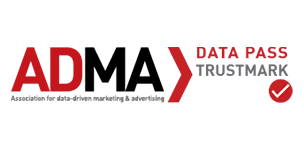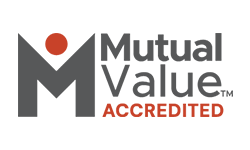The United Nations (UN) has designated 15 June, every year as the internationally recognised World Elder Abuse Awareness Day (WEAAD). The National Elder Abuse Prevalence Study, released in December 2021, suggests that approximately one in six older Australians experienced elder abuse in a given year. The UN cites rates of elder abuse having increased during the COVID-19 pandemic.
As a customer owned bank, we are a member focused, values-driven organisation and we are committed to making banking easy, safe and accessible for all of our members – especially those most at risk of elder abuse.
What is elder abuse?
Elder abuse is the mistreatment of an older person, and it can take various forms ranging from physical and sexual assault, to neglect, psychological and financial mistreatment.
This abuse is not committed by a stranger, but by a trusted loved one, friend, or support person of the older person. It is challenging and complex to address, with evidence suggesting most instances of elder abuse are intra-familial and intergenerational. Often it may go unreported, as it can be difficult for a victim to talk about or report the abuse.
Sadly, elder financial abuse is the most common form of elder abuse prevalent in the community and is likely to increase as the Australian population ages. Those over the age of 50 are most at risk, but it can happen to anyone, including you or someone you care about.
What is elder financial abuse?
Relationships Australia defines elder financial abuse as:
“The illegal, mismanagement or improper use of the older person’s finances. This includes stealing money or possessions, controlling their finances without permission, threats or coercion to gain power of attorney or pressuring them for early inheritances.”
Why does elder financial abuse occur?
Isolation and dependence on others: Older people can become isolated and dependent on those they trust: family members, neighbours or carers, which makes them especially vulnerable. Others at high risk include those who have a physical or mental disability or a limited understanding of financial matters, perhaps due to language skills or cultural attitudes. Unfortunately, anyone who is reliant on others is at risk of financial abuse.
Inheritance impatience: This is the biggest cause of elderly financial abuse, and refers to family members pre-empting their inheritance to purchase goods using their elderly relative’s funds. Instances of this wrongful sense of entitlement are increasing, as are the calls for more government support and better co-ordination across jurisdictions. According to the Australian Banking Association, six in 10 Australians have concerns that someone they know will become a victim of elder financial abuse. This type of abuse manifests in many different ways and can take place over an extended time period.
Warning signs of elder financial abuse include:
- You have not been receiving your usual mail, including your bank statements, but you have not cancelled the service.
- You feel that you have to request permission from another person to spend your own money.
- Someone is pressuring you to sign a power of attorney granting control of your bank account to them, or someone else.
- Someone is very interested in your will and is perhaps forcing you to change it.
- If you have appointed someone as your power of attorney, you feel that they are not acting in your best interests, i.e. they are using your money for their own interests.
- Someone else has control of your bank account/s – your access card/PIN/credit cards – without your consent.
- Your signature has been forged on cheques or legal documents.
- Unexplained transfers, withdrawals or payments have appeared on your account statements; be particularly suspicious of large amounts.
- You have become aware of new investments, debts or loans in your name or are being pressured to take out such investments, debts or loans in your name.
- Your bills have not been paid, despite requesting someone to arrange this for you.
- Someone is arranging to sell or is threatening to sell your property without your permission.
- You are experiencing threatening behaviour, such as someone threatening to isolate you from your family and friends if you do not comply with their wishes.
- Someone is making you feel guilty if you do not give them money.
- You are feeling intimidated, possibly involving verbal abuse, cajoling, anger or threats.
- You no longer feel in control of your finances.
How to protect yourself
- Make sure you have access to your own mail and do not leave any mail lying around unopened.
- Keep your account access, i.e. access card/s and PIN/s, secure. Do not write PINs or passwords down or store them in your wallet or around the house.
- Do not keep large amounts of cash at home.
- Ensure that your cheque books and legal documents, such as your will and property deeds, are stored securely.
- Consolidate your accounts where possible so that it’s easier to spot any unusual activity.
- Review your bank statements regularly to make sure there are no unauthorised transactions.
- If you are considering a power of attorney, think about nominating more than one person and decide whether they will act separately or together.
- Do not sign any documents unless you fully understand them.
Get support
It is important to build strong relationships with people who can help you or your loved ones. Ideally, form your support team from a mix of contacts. For example, your GP, your accountant or financial adviser, a friend and a family member.
- Your GP can help assess your legal capacity for making decisions and managing your own affairs. It’s a good idea to discuss any concerns during your regular health check-ups.
- Your lawyer can help you formalise your will and any other financial or family agreements. They can also create and help you to understand a power of attorney document. If you do not have a lawyer, you can obtain free legal advice from your state or territory’s Legal Aid office or community legal centre.
- If you have an accountant, you can advise them of any decisions on power of attorney and they can help monitor your accounts for any suspicious activity.
Understanding power of attorney and enduring power of attorney
A power of attorney (POA) is a document created by your lawyer that grants one or more persons the authority to act on your behalf for financial and legal matters. This means that the designated person or persons can operate your bank accounts, spend money on your behalf, and buy and sell your assets: property and/or shares. The general POA is only effective while you have the mental capacity to make and express decisions for yourself.
An enduring power of attorney (EPOA) allows someone to continue to make financial decisions on your behalf if your health deteriorates and you suffer from diminished mental capacity. You can choose when your power of attorney comes into effect and it can be tailored to your requirements.
If you are thinking about appointing a power of attorney or other decision making authority, you should carefully consider whether they have the right skills to assist you now and in the future. To avoid someone unethically exploiting their power, you should assess these arrangements at least annually, to ensure your support team continue to have your best interests at heart when helping to manage your affairs.
Need help?
If you are worried that you or your loved ones are vulnerable, seek help:
- Elder abuse phone line 1800 ELDERHelp (1800 353 374) directs callers to the elder abuse service in their state or territory.
- Relationships Australia publish a list of state and territory assistance services.
- Lifeline provides support 24 hours a day, 7 days a week for those in crisis.
- MoneySmart.gov.au publish a range of resources that can help you.
- The Australian Institute of Family Studies also publish a list of elder abuse support services.
- Be Connected provides online learning resources to empower all Australians to thrive in a digital world.
At G&C Mutual Bank, our team has been trained to help identify the warning signs of financial abuse. Members can contact us on 1300 364 400 to discuss any concerns with their account. We’re ready to help you.




